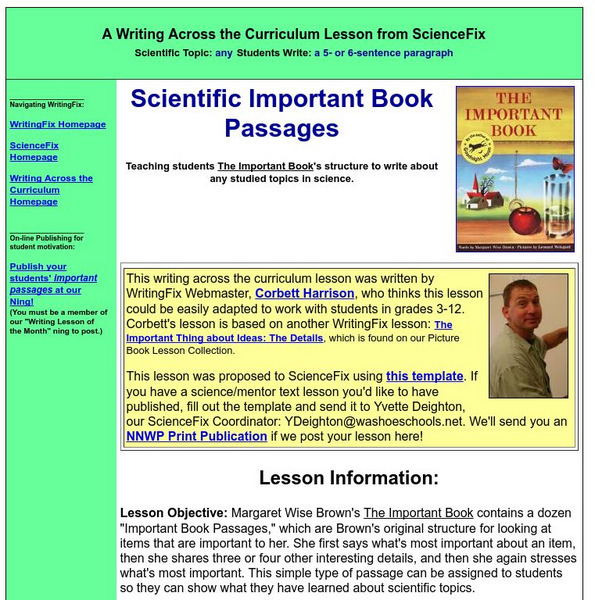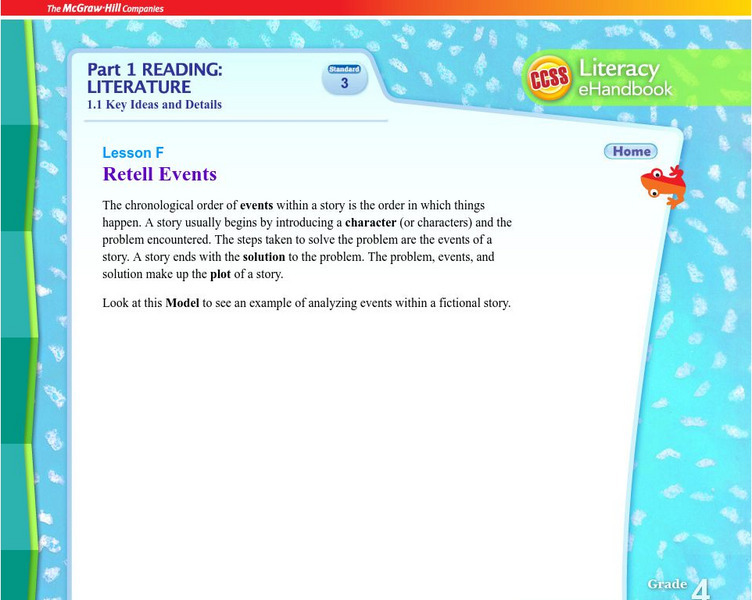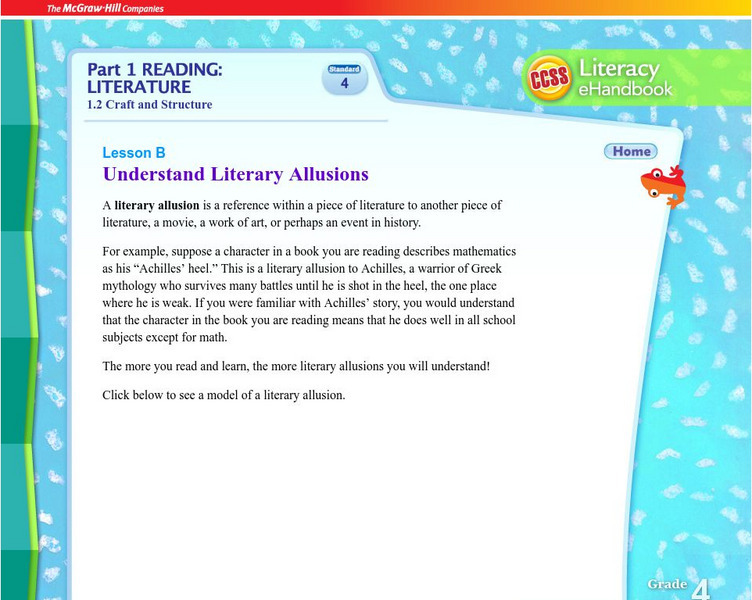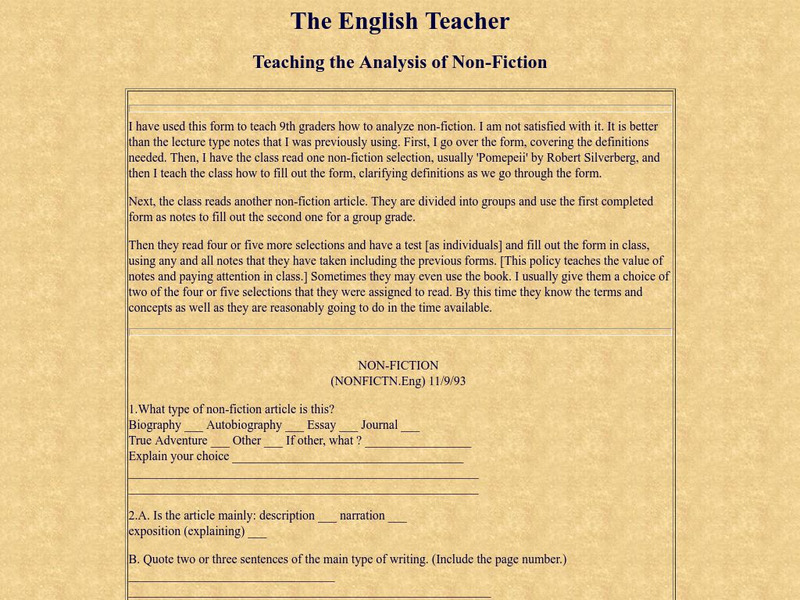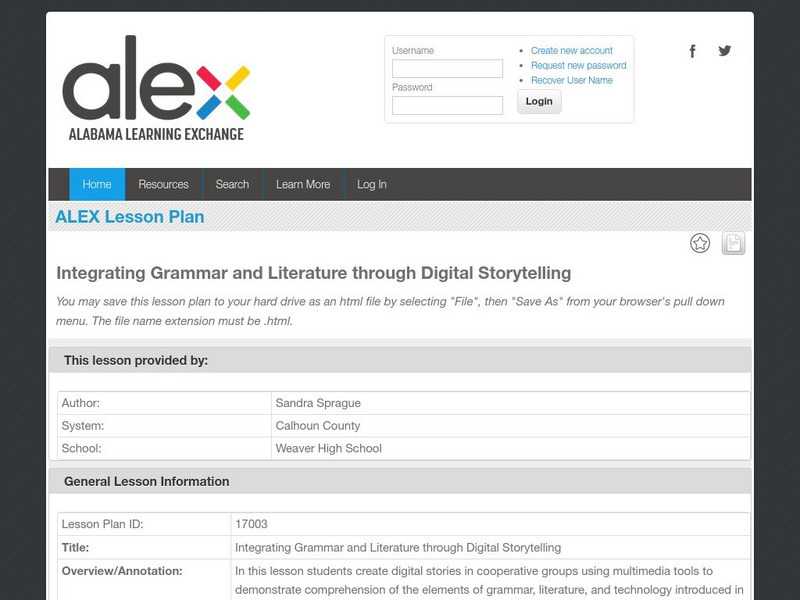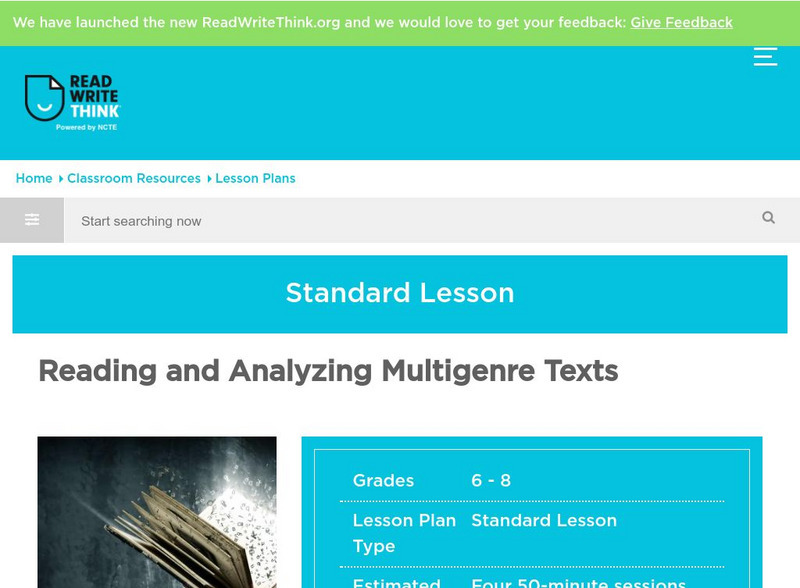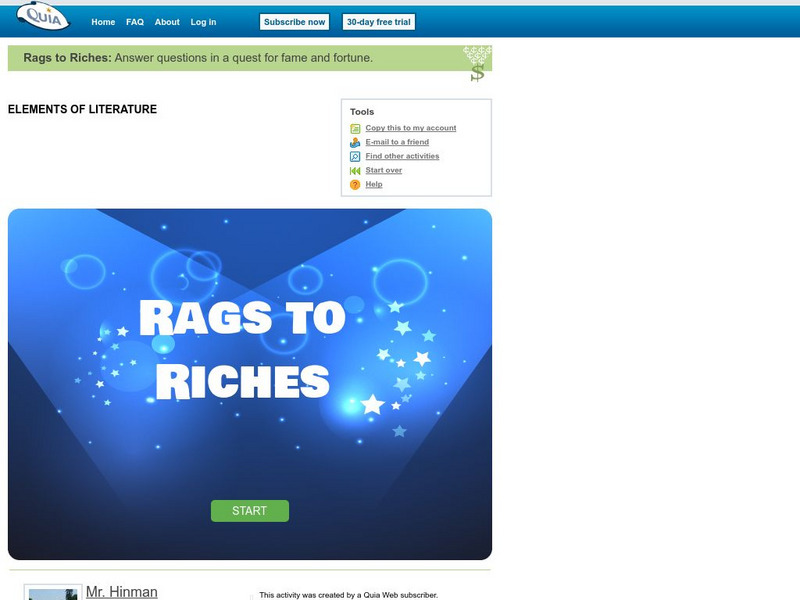Houghton Mifflin Harcourt
Holt, Rinehart and Winston: Writer's Model: Book Review Example 1
This three-page essay provides an example of an book review. Clicking on the "Writer's Guide" link in the upper right-hand corner of the page enables the user to get tips, directions, and explanations on the essay.
Houghton Mifflin Harcourt
Holt, Rinehart and Winston: Writer's Model: Book Review Example 2
This three-page essay provides an example of an book review. Clicking on the "Writer's Guide" link in the upper right-hand corner of the page enables the user to get tips, directions, and explanations on the essay.
AdLit
Ad lit.org: An Introduction to Analytical Text Structures
Many students are used to writing narratives - stories, description, even poetry, but have little experience with analytical writing. This article is an introduction to six analytical text structures, useful across content areas. See...
AdLit
Ad lit.org: A Summary of "Writing Next"
What does research tell us about effective teaching techniques to help adolescents develop their writing skills? This article summarizes Writing Next, a 2007 study of adolescent writing instruction.
Ted Nellen
Cyber English (By Ted Nellen): Characterization
This is a glossary entry for the term "Characterization" including a definition and the characteristics to be developed: Character's appearance, actions, thoughts, voice, and reaction from others.
Writing Fix
Writing Fix: Emotions and Colorful Days
In this lesson students will learn to write descriptively.
Writing Fix
Writing Fix: Action Words Bring Life to Setting Details [Pdf]
Students learn how to develop their ideas through description and action words through a story scavenger hunt. [PDF]
Writing Fix
Writing Fix: Scientific Important Book Passages
Young scholars read and examine the structure of The Important Book by Margaret Wise Brown and then follow that pattern while writing about the most important things about various scientific topics. Printable handouts and student samples...
Writing Fix
Writing Fix: Writing Scientific "Recipes"
Adapted from a lesson in the book 51 Wacky We-Search Reports by Barry Lane, this lesson asks students to read several recipes to gain an understanding of how they are written and the types of words they use. Then students demonstrate...
Curated OER
Mc Graw Hill: Part 1 Reading: Literature: Describe Characters
A reference guide on how to analyze characters in a story.
Curated OER
Mc Graw Hill: Part 1 Reading: Literature: Retell Events
Retelling a story shows a student's comprehension. Use this site to test your knowledge of how to retell events that happen in a story.
Curated OER
Mc Graw Hill: Part 1 Reading: Literature: Understand Literary Allusions
Understanding literary allusions can help in your understanding of readings. Learn about literary allusions on this site.
Curated OER
Mc Graw Hill: Analyze Language Choices
Learn about figurative language and how to determine the figurative, denotative, and connotative meanings of words.
Curated OER
Mc Graw Hill: Structure Within a Story
Learn why structure is important when organizing a story then read an excerpt from the story "Three over Four" to practice how structure helps to develop the story's theme, setting, and plot.
McGraw Hill
Mc Graw Hill:informational Text: Analyze Development of Text Elements:individuals
Read an informational piece, and learn how to analyze the development of individuals in the text. Includes practice exercises.
The English Teacher
The English Teacher: Teaching the Analysis of Non Fiction
A form used by an English teacher to help students understand and analyze nonfiction literature. Very helpful ways to classify information. It can be modified for different grade levels.
Other
Kid Bibs: Effective Use of Textbook Features
Here, parents and teachers can find tips for helping young readers understand the expository writing found in textbooks.
Alabama Learning Exchange
Alex: Grammar and Literature Through Digital Storytelling
In this lesson students create digital stories in cooperative groups using multimedia tools to demonstrate comprehension of the elements of grammar, literature, and technology introduced in the lesson. Students become actively involved...
ReadWriteThink
Read Write Think: Lights, Camera, Action: Interviewing a Book Character
Students get the inside scoop on a story when they create interview questions and answers for characters in the books they read.
Other
Suny: Conventions of Writing Papers About Literature
A professor's excellent explanation of how to write a professional sounding essay. Covers all aspects of an essay, and detailed examples give information on exactly how to write the essay.
ReadWriteThink
Read Write Think: Choose Your Own Adventure: A Hypertext Writing Experience
This series of lessons involves student collaboration, writing and analytical skills, technology and imagination. While the lesson suggests use of FrontPage, it would also be possible to use a number of other authoring tools.
ReadWriteThink
Read Write Think: The Big Bad Wolf: Analyzing Point of View in Texts
In this lesson, students will research a fairy tale and analyze it based on the point of view. CCSS.ELA-Literacy.CCRA.R.6
ReadWriteThink
Read Write Think: Reading and Analyzing Multigenre Texts
This lesson plan deals with the process of analyzing a variety of literary texts from poetry and letters to diary entries and works of fiction. Included in the lesson plan is an overview, practice, objectives, resources, preparation, and...
Quia
Quia: Elements of Literature: Rags to Riches
Answer the 15 questions in this game about literary elements for the prize of fame and fortune. Java is required.








![Writing Fix: Action Words Bring Life to Setting Details [Pdf] Lesson Plan Writing Fix: Action Words Bring Life to Setting Details [Pdf] Lesson Plan](https://d15y2dacu3jp90.cloudfront.net/images/attachment_defaults/resource/large/FPO-knovation.png)
